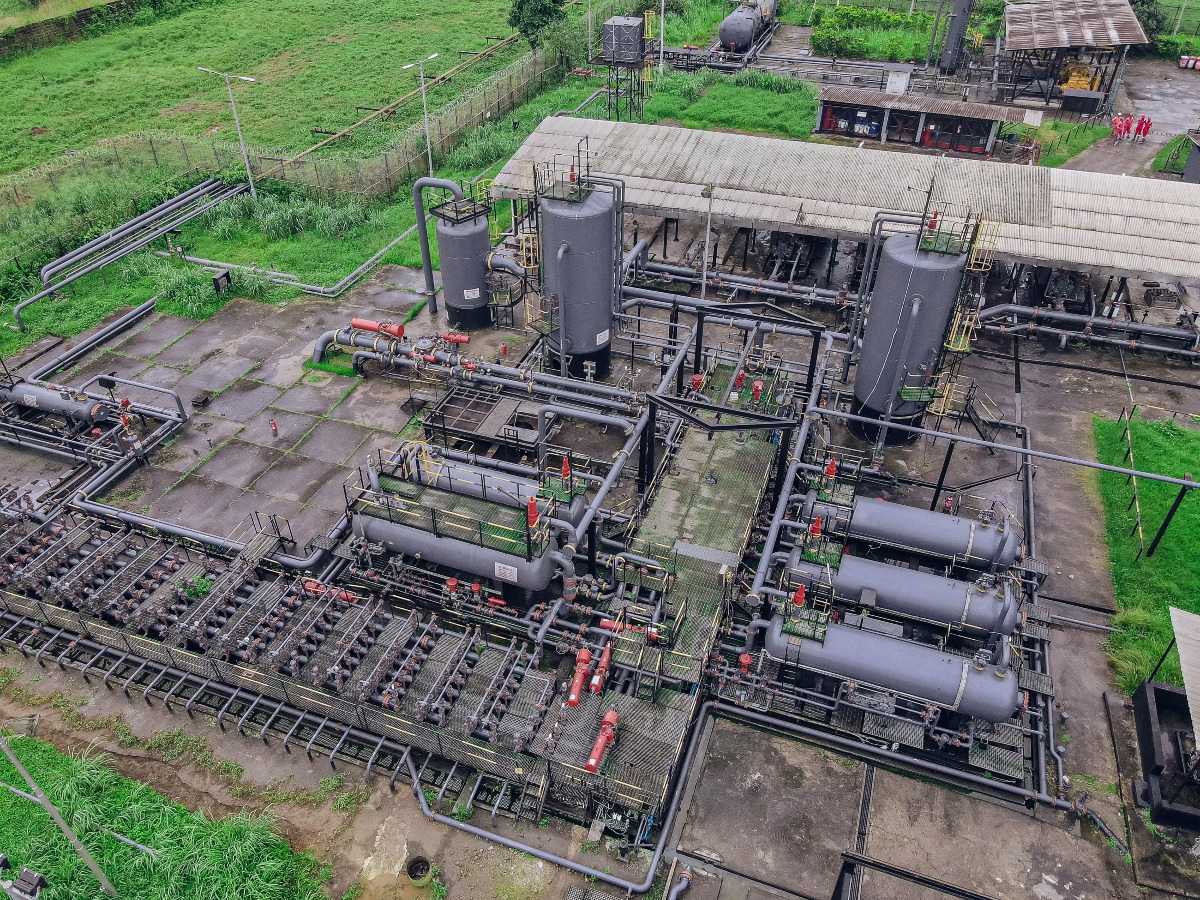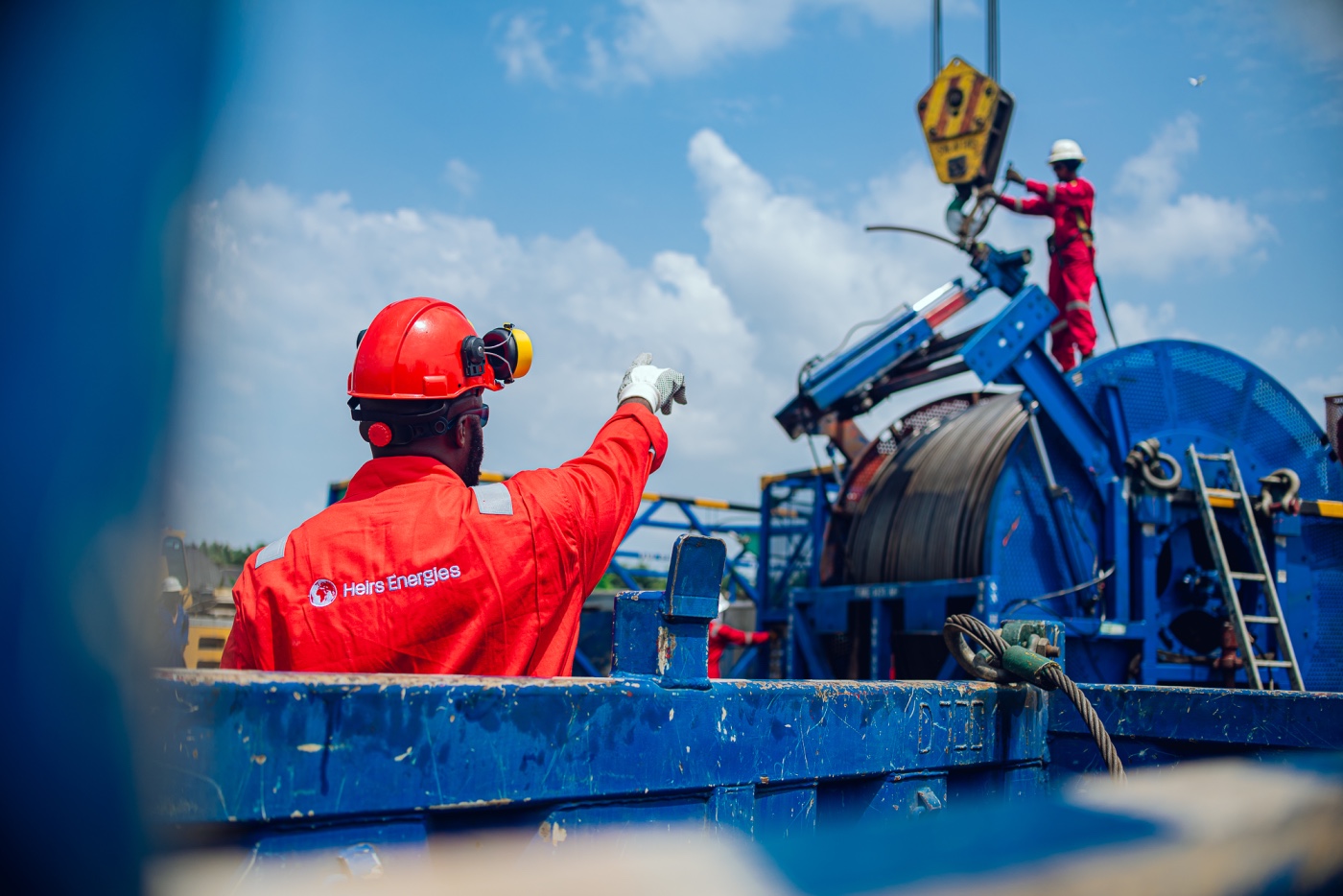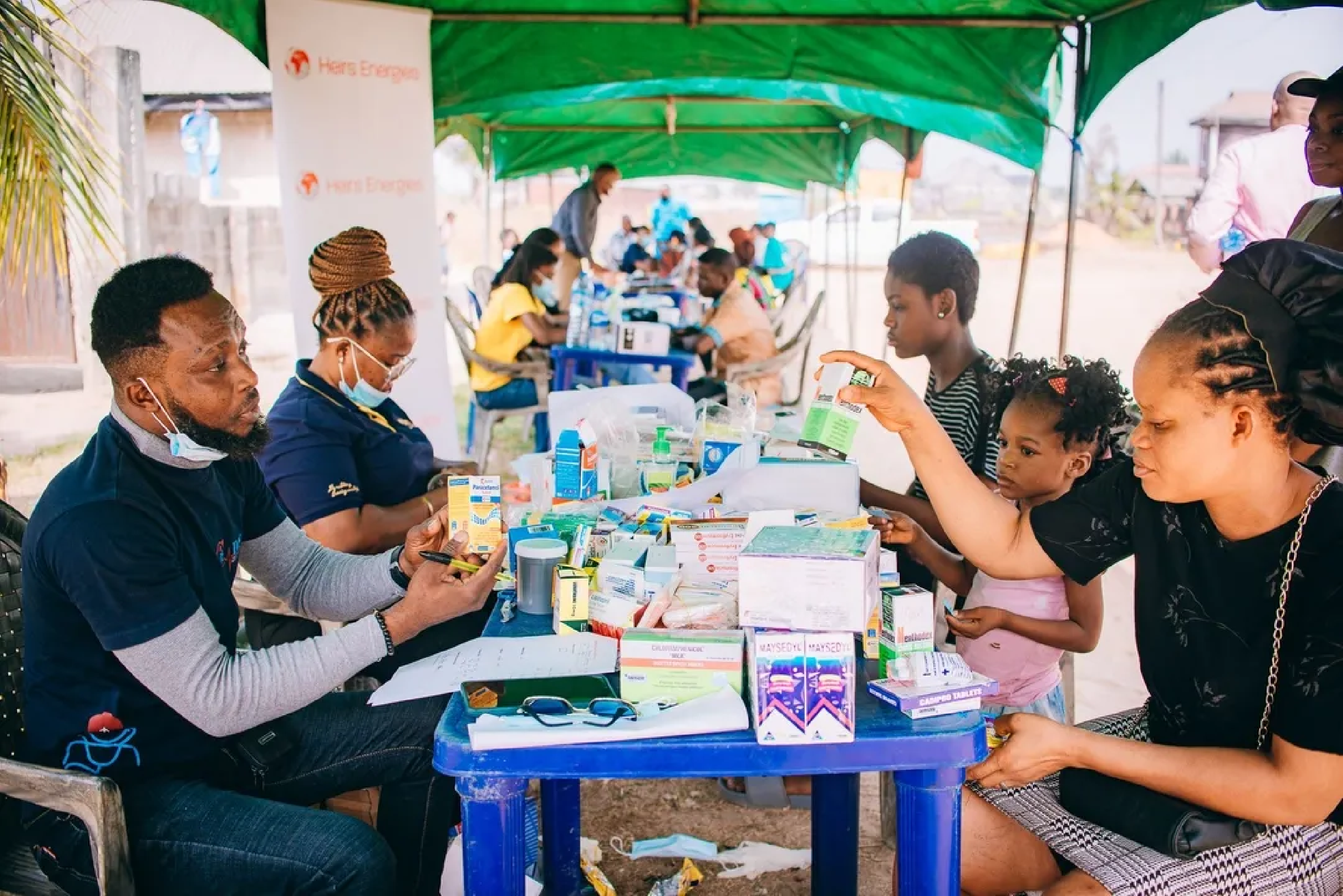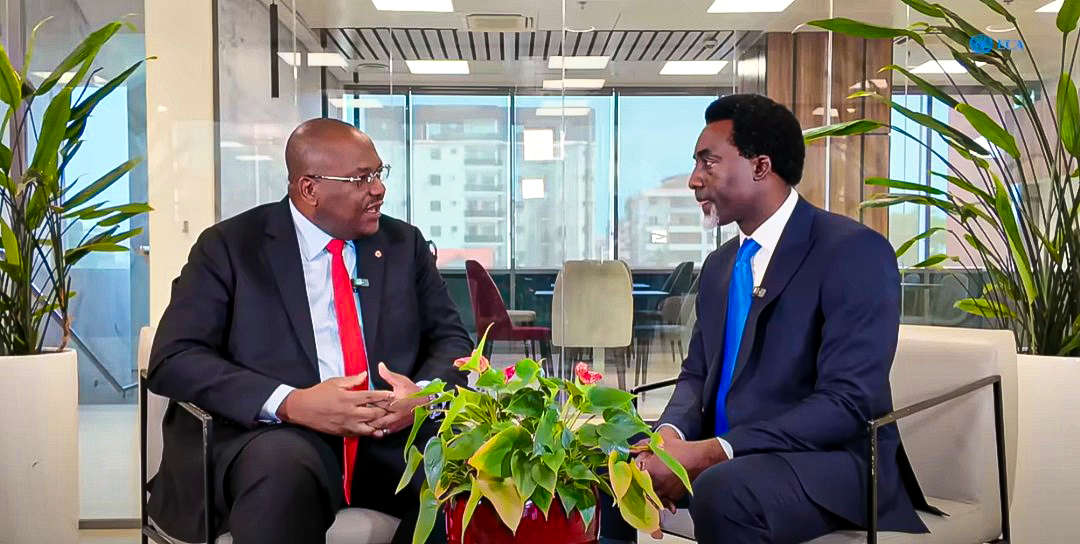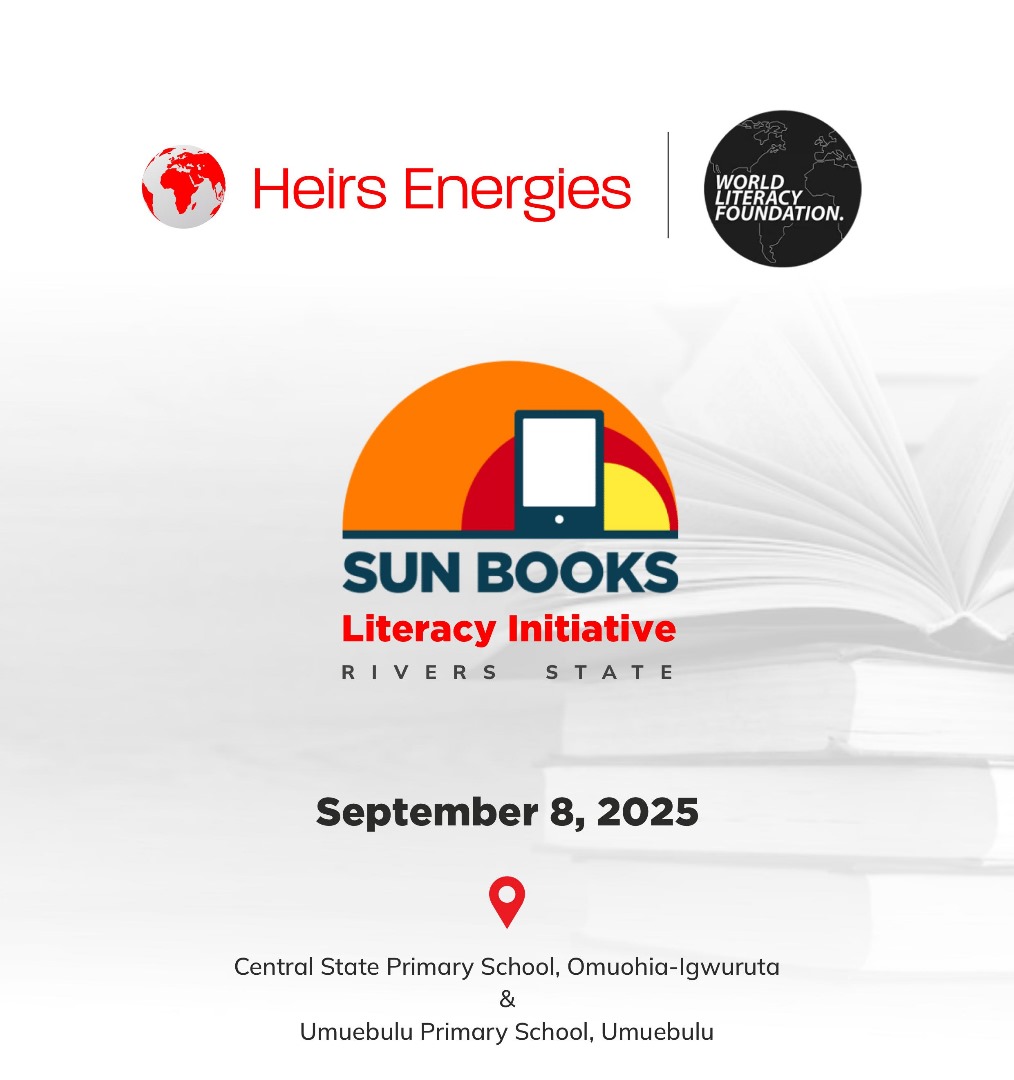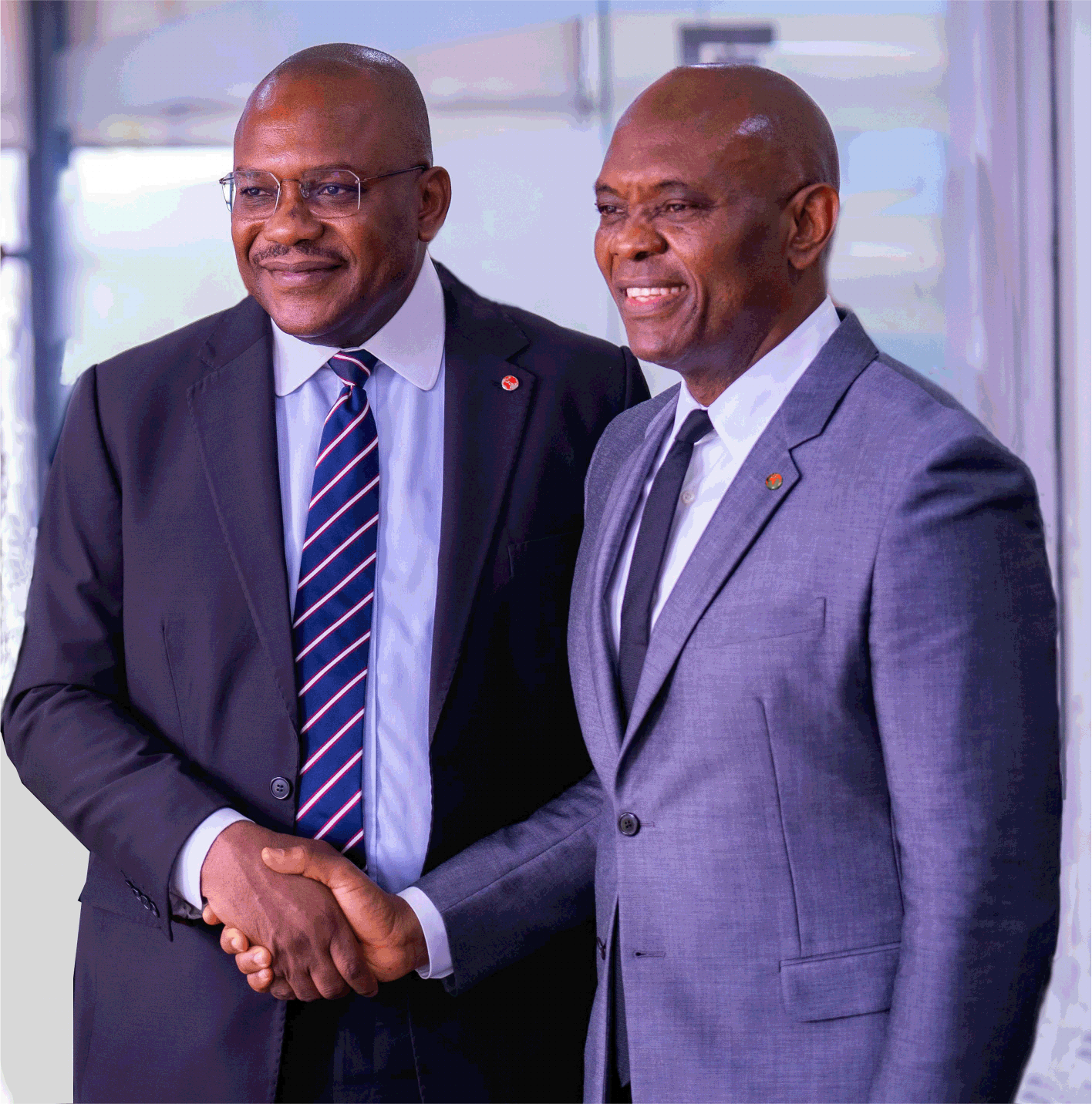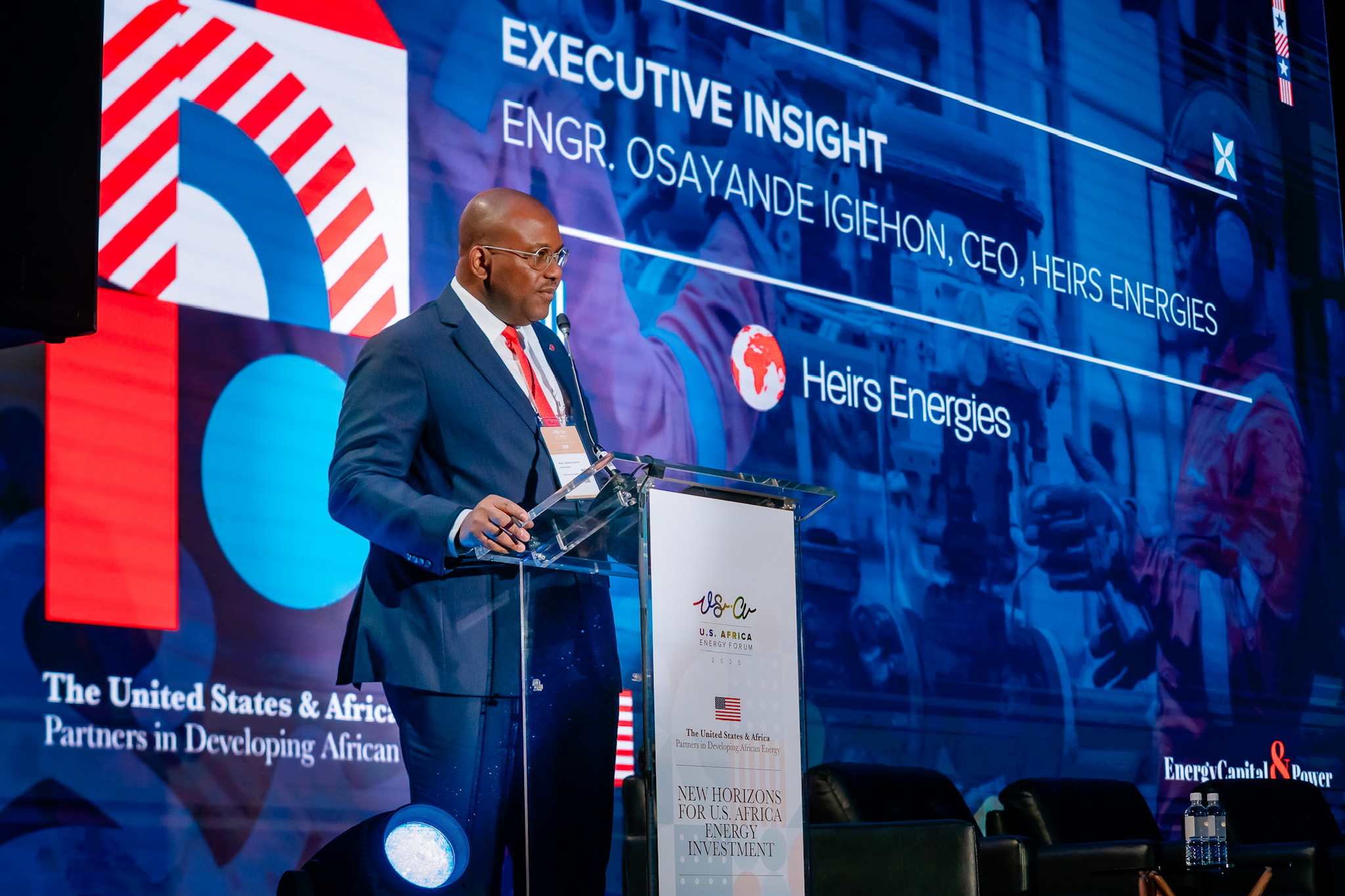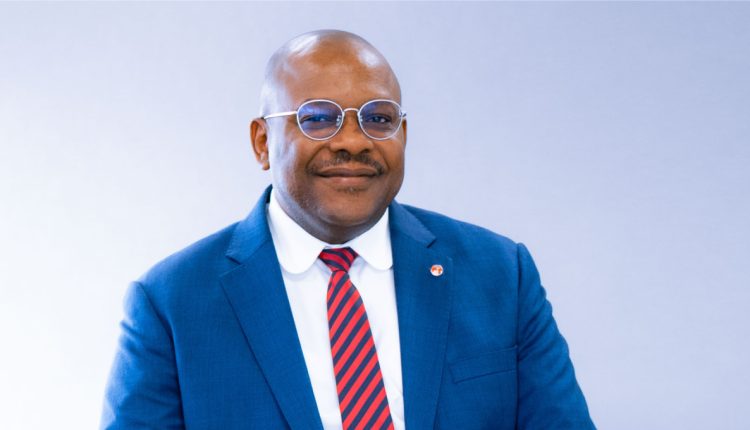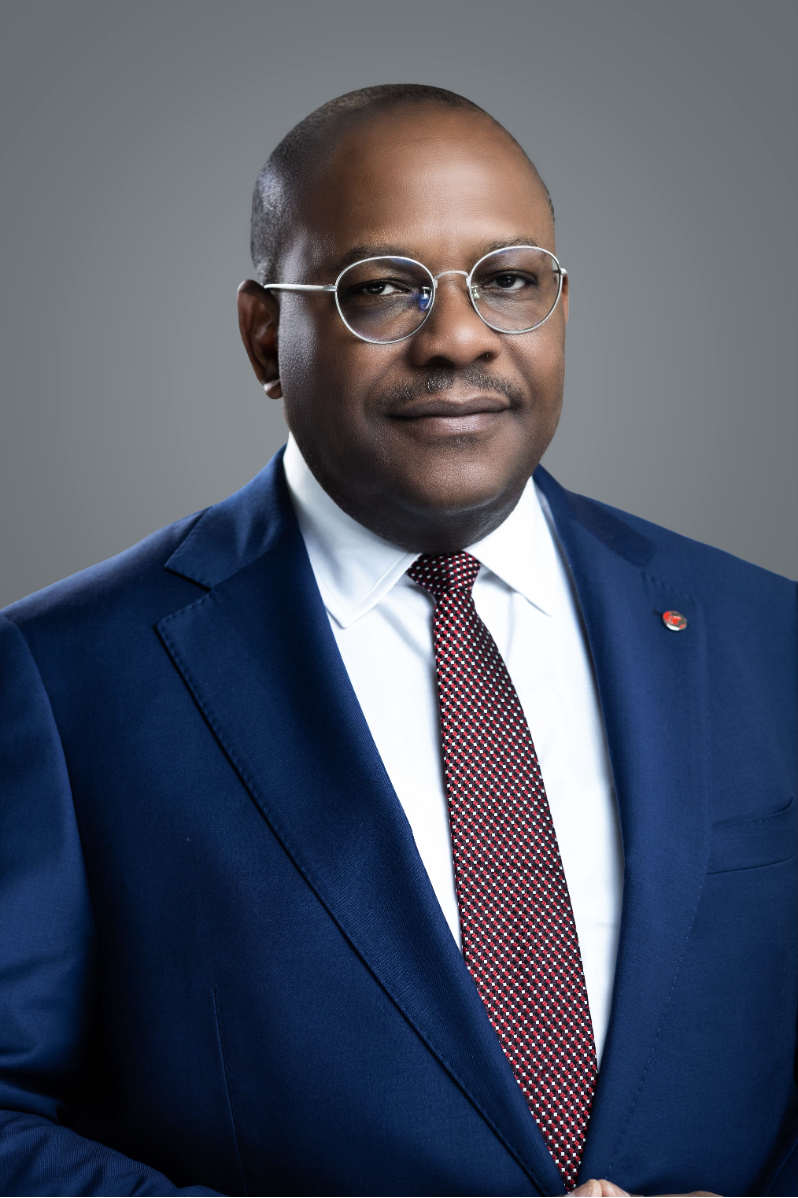The Chief Executive Officer (CEO) of Heirs Energies, Mr. Osa Igiehon is not an easy man to get for an exclusive interview due to his very tight schedule. But the Crude Reports magazine editorial team’s persistence and patience got us the desired result.
In this interview, Mr. Osa Igiehon spoke on a number of issues about the growth of Heirs Energies and other related matters affecting the Nigerian oil and gas industry.
Below are the excerpts:
Question 1:
As Africa’s largest indigenous-owned energy company, what is the remarkable feat achieved by Heirs Energies that sets it apart from other competitors? You mentioned it during the SAIPEC conference of 2025 held at Eko Hotel.
Response:
The turnaround of OML 17 is a clear example of what sets Heirs Energies apart.
When we acquired OML 17, many in the industry doubted whether we could manage such a complex asset, questioning if we had the technical and operational capacity to deliver, as new entrants. But based on our Africapitalism investment approach and history of turnaround excellence, we saw potential where others saw challenges.
Within 100 days, we stabilised operations, addressed critical infrastructure issues, and doubled production – all without drilling a single new well. This was achieved by application of our novel Brownfield Excellence approach, building strong partnerships with host communities, and maintaining disciplined execution.
Beyond production, we commissioned the Agbada Non-Associated Gas (NAG) plant, a facility that had been under development for over 12 years without completion under previous operators. We were able to bring it online seamlessly, expanding gas supply for power generation and industries, and advancing our commitment to gas to provide fuel and feedstock power plants and industries respectively.
What makes this achievement remarkable is that it was driven by a wholly indigenous team, supported by local contractors, while operating to international standards. At a time when many fields were facing decline, we proved that African operators can successfully transform underperforming assets into productive, cash-generating fields with disciplined focus and execution.
Our success in turning around OML-17 has helped also underpinned the resurgence of the Nigerian Oil and Gas industry. It showed that it was possible to operate safely and compliantly in the Niger Delta. Our success debunked many myths and negative stigmas about the Niger Delta, thereby showing a veritable example that helped catalyse a more positive disposition of operators, investors and the general public about Niger Delta.
Question 2:
Energy transition is crucial to the oil and gas industry. What are the strategies employed by Heirs Energies to achieve this?
Response:
At Heirs Energies, we take a practical, Africa-focused approach to the energy transition. For us, the energy transition that Africa needs is to transit from the current state of “energy deficiency” to a future state of “energy sufficiency”. With over 50% (or over 600 million) sub-Saharan Africans without adequate energy, achieving energy sufficiency is a key imperative to secure the economic development that is badly needed to lift our continent and its people.
For us at Heirs Energies, we believe that Africa’s push for energy sufficiency clearly recognizes the global needs to decarbonise. However, with Africa currently contributing only 4% of global emissions, we posit that with a balanced mix of fossil and renewables, incorporating latest technologies, Africa can achieve twin objectives of energy sufficiency and will remain the lowest emissions continent on the world.
Energy sufficiency will be transformational for Africa. Part of the major underlying reasons for Africa’s underdevelopment is insufficient energy. We must envision and achieve the outcome of a continent that has 100% electric power supply to all industries, businesses, schools and homes. Attaining such an outcome for energy will catalyse unprecedented investment, jobs and employment, productivity at all levels (artisanal to industrial), and significantly improve social empowerment and wellbeing.
The journey to this energy future and the future state will have Gas at its core. Since acquiring OML 17, we have doubled our gas production capacity, supplying power generation and industries while displacing higher-emission fuels like diesel and at the local levels, use of firewood and other lower efficiency energy sources.
Heirs Energies commitment to Gas development, production and processing is a key plank of our long term strategy to help uniquely address Nigeria’s and Africa’s energy challenges.
As part of this strategy, we are also focused on eliminating routine flaring ahead of regulatory timelines. We participate actively in the Nigeria Gas Flare Commercialisation Programme and have invested in technologies to capture and monetise gas that would otherwise be wasted, turning environmental challenges into economic value.
In parallel, we continue to improve operational efficiency and reduce emissions across our value chain. This includes rehabilitating infrastructure, upgrading systems, and leveraging technology to monitor and manage emissions.
For us, the energy transition is not about slogans; it is about delivering reliable energy today while investing to make material contribution to Africa’s journey of energy sufficiency whilst remaining the lowest emissions continent.
Question 3:
What are the plans and timeline for increased production from OML 17?
Response:
Our goal at Heirs Energies is to continue unlocking the full potential of OML 17 in an innovative and sustainable manner.
Since taking over the asset, we have stabilised operations and doubled production sustainably within a short period, proving what is possible with innovation and focused execution. Looking ahead, our plan is to further increase production through a phased approach that prioritises system reliability, targeted well interventions, and infrastructure upgrades.
With our brownfield excellence approach, we are wrapping up our program of Closed In Wells Reactivation where we tripled the number of wells producing, and are now progressing into the next phase that will be dominated by Well Workovers. In this next phase, we will also be making strategic investments in the surface equipment to improve system effectiveness and capacity. Additionally, we are innovating the traditional maintenance approach prevalent in the industry which we have found to be very reactive, to a more proactive maintenance approach. With this phase and subsequent phase of our growth program, we will be able to overcome natural decline and grow the production incrementally in the coming months and years. We are also working to strengthen the robustness of evacuation routes and develop processing capacities to ensure that as we increase output, we can efficiently deliver to the market.
Our timelines are aligned with our commitment to responsible growth. Over the next three to five years, we aim to increase production levels significantly beyond current output, while ensuring we maintain our focus on safety, environmental stewardship, and value delivery to our stakeholders.
For us, increasing production at OML 17 is not just about volume; it is about doing so in a way that supports Nigeria’s energy security, creates local value, and aligns with the country’s broader development goals.
Question 4:
What partnerships does Heirs Energies have with other IOCs and indigenous oil and gas players?
Response:
Partnership is central to how we operate at Heirs Energies. We recognise that collaboration across the industry is critical to unlocking Africa’s energy potential.
We work closely with the Nigerian National Petroleum Company Limited (NNPC Ltd) through our joint venture on OML 17, maintaining an open and constructive partnership to deliver production growth and value for all stakeholders. This collaboration has been instrumental in our success at OML 17, demonstrating how indigenous operators and national partners can drive operational excellence together. This is same with all our regulators.
We also engage with other indigenous oil and gas players and service providers, leveraging local expertise and capacity across our operations. Over 95% of our contractors are local, and we see this local collaboration as a key part of our competitive advantage.
In addition, we are open to exploring technical and operational collaborations with international oil companies (IOCs) where there is alignment on creating value, transferring knowledge, and advancing operational standards within the Nigerian and African energy sectors.
For us, partnerships are not just transactions; they are long-term relationships built on shared values, as well as the commitment to advancing Africa’s energy industry responsibly.
Question 5:
In giving back to the environment, can you highlight the achievements of Heirs Energies’ CSR initiatives?
Response:
At Heirs Energies, we view involving our host communities in our business ecosystem as integral to how we operate, not as separate CSR activities. Our Chairman, CEO and many of our other directors, executives, management and workforce are from the Niger Delta, and we operate with a shared destiny mindset.
So, involving our communities is both from the “heart” and from the “head”. From the heart, we engage with our communities respectfully and symbiotically. From the head, we have promptly established the Host Community Development Trust (HCDT) structures mandated by Government via the Petroleum Industry Act.
The HCDT evolves from best practice approach by indigenous companies in managing relations with host communities. We have implemented that in our characteristically innovative manner and the OML-17 HCDT is seen as a beacon of inclusion and opportunity by our host communities. The HCDT approach is the first by law that recognizes the role of host communities in the oil and gas extractive process, and mandates a portion of the operating budget for communities, as opposed to the hitherto approach where this was left to the parties to agree.
With this approach our host communities are partners in progress, with resources directly supporting local development priorities. This has resulted in investments in healthcare, education, and infrastructure projects that address community needs while fostering stability around our operations.
We have also prioritised local content, with over 95% of our contractors being local companies, ensuring that our activities create jobs and build capacity within the communities we operate.
For us, CSR is about creating shared value, ensuring that while we pursue operational and financial objectives, we also contribute meaningfully to environmental sustainability and the long-term development of our communities.
Question 6:
What is the big picture that Heirs Energies is looking at in the nearest future in terms of growth and expansion drive beyond Nigeria, Africa, and the global level?
Response:
At Heirs Energies, our big picture is clear: to build Africa’s leading integrated energy company, delivering reliable, affordable energy while creating value across the continent.
In the near term, we are focused on unlocking the full potential of our current assets, particularly OML 17, through innovative production growth, further development of our gas portfolio, and continued operational excellence. We will deepen our role in supporting Nigeria’s energy security while contributing to the country’s industrialisation and economic growth.
Beyond Nigeria, with pan-Africanists, and with our Africapitalism investment philosophy, we see opportunities to expand our footprint across Africa, leveraging our experience in turning around underperforming assets and our commitment to responsible, sustainable operations. We are looking at opportunities where we can bring our expertise to bear, working with partners who share our long-term view of Africa’s energy potential.
Globally, we are positioning Heirs Energies to align with the evolving energy landscape by investing in technology, efficiency, and sustainability, ensuring we remain competitive as the industry transforms.
Our goal is to be a reference point for what indigenous African companies can achieve in the energy sector, building a business that reflects Africa’s potential while operating to global standards.
Source: Crude Reports
